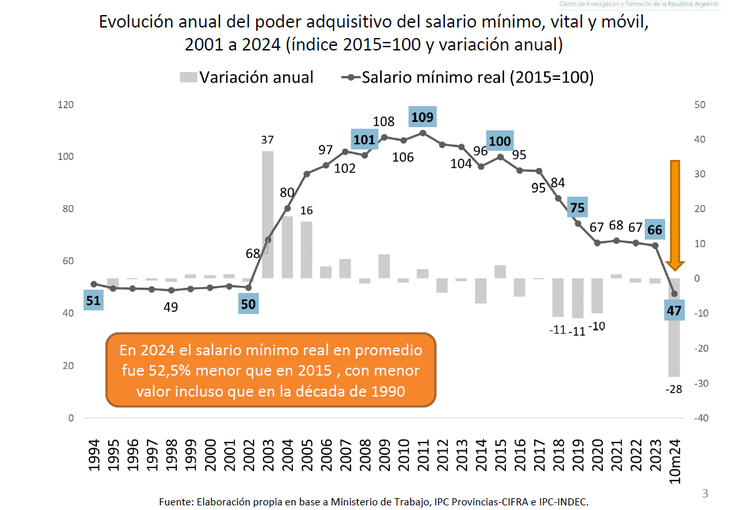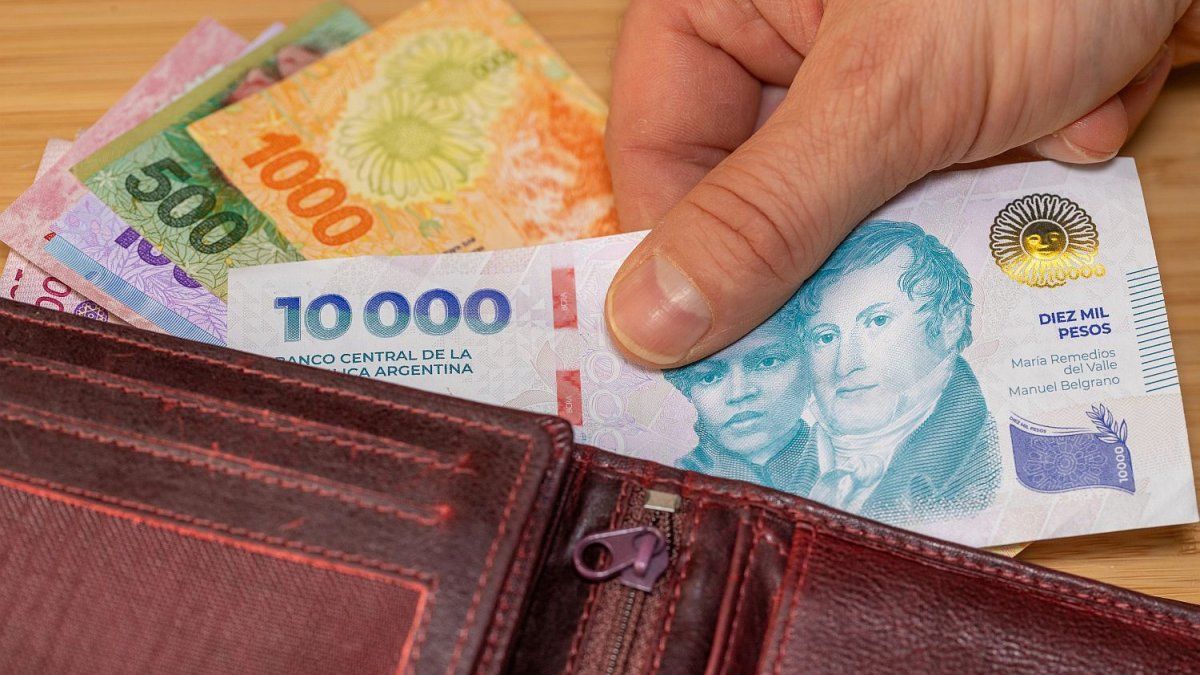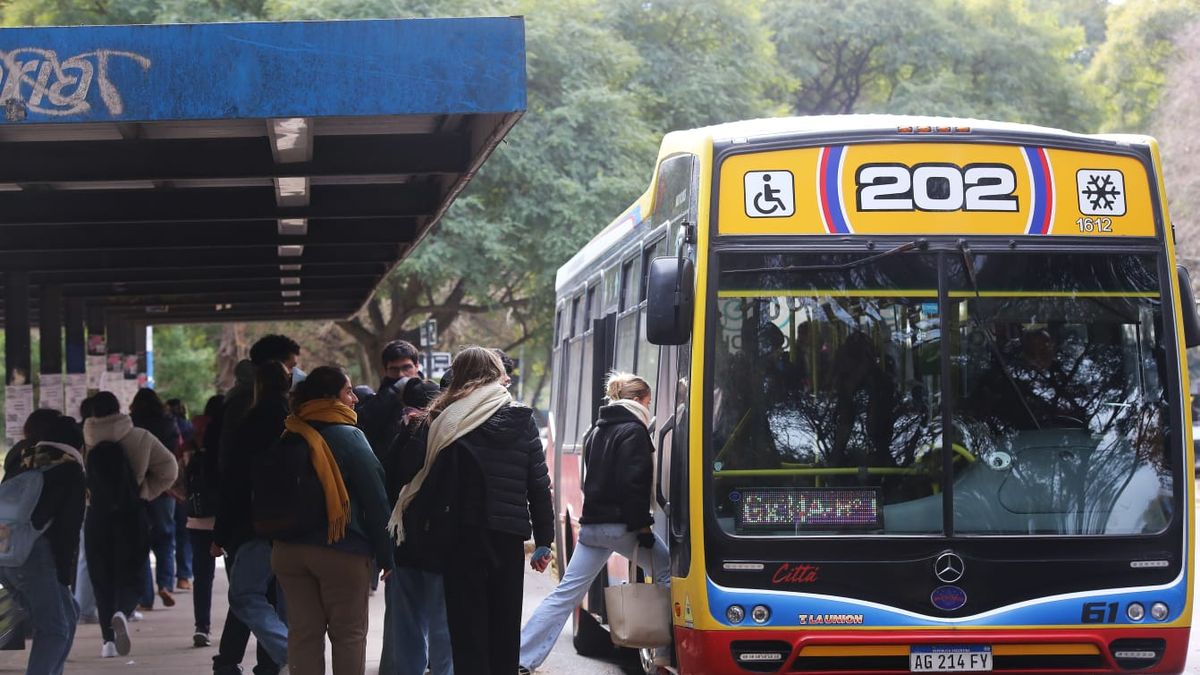After the devaluation that had a direct impact on prices, the minimum wage did not recover throughout the year. In this way, its real value did not improve either compared to November 2023, or compared to the Cambiemos era.
He minimum, vital and mobile wage (SMVM) had a brutal loss of purchasing powerproduct of the effect of currency devaluation and its impact on prices. According to a report prepared by the Research and Training Center of the Argentine Republic (CIFRA), linked to the Central Workers of Argentina (CTA), There was no recovery for the minimum wage since in October with $271,571 it showed a real value 28.4% lower than in November 2023. For its part, if compared with the management of Cambiemos, the purchasing power of the minimum wage is 39.9% lower than in 2019 and 54% lower than in November 2015.
The content you want to access is exclusive to subscribers.
“The historical setback is so great that the real value of the minimum wage is already lower than that prevailing for most of the 1990s and in the final crisis of the convertibility regime, when this policy had been abandoned as a tool to determine salary floors and promote lower salary inequality,” the study stated.


According to this report, the minimum wage reveals a situation “worse than that of 2001” given that The current October one is only enough to cover 54.3% of the basic basket of food, which defines the indigence line for a typical family and just over a quarter of the poverty basket.
“If not, the loss of purchasing power of the minimum wage would have taken place since the end of 2015 to date; last October this salary would have been greater than $590,000 measured in pesos of that month and would have represented more than 143 on the basic food basket mentioned,” said the analysis.
Screenshot 2024-11-27 105825.png

According to this report, the minimum wage reveals a situation “worse than in 2001”
Formal salaries still do not equal the purchasing power of November 2023
He average salary of formal workerswhich measures the National Institute of Statistics and Censuses (INDEC)also recorded a sharp contraction between November and December of last year. Although, with the inflation slowdownadded to the salary negotiations within the framework of the joint agreements, allowed, first, to prevent the decline in the purchasing power of assets from continuing and, then, to begin a recovery process.
In the month of August, this index registered an increase of 0.8%, and 0.3% in September. Despite this, as of September 2024 (latest data available) The purchasing power of average salaries continued to be 1.5% lower than the November value. However, the percentage increase attenuated markedly since August.
The outlook for the months of August and September is more critical when the average remuneration figures for registered private sector employees from the SIPA are analyzed. After growing in real terms in the month of June (+4%) and July (+2.8%), in August it experienced a drop of 2.5% and in September, the preliminary data released by the Ministry of Labor gives account of a new drop, of 1%.
This implies a loss of purchasing power of 3% below the record of November 2023. At the same time, it accumulated a drop of around 20% compared to the maximum of the series recorded in May 2013.
Source: Ambito




